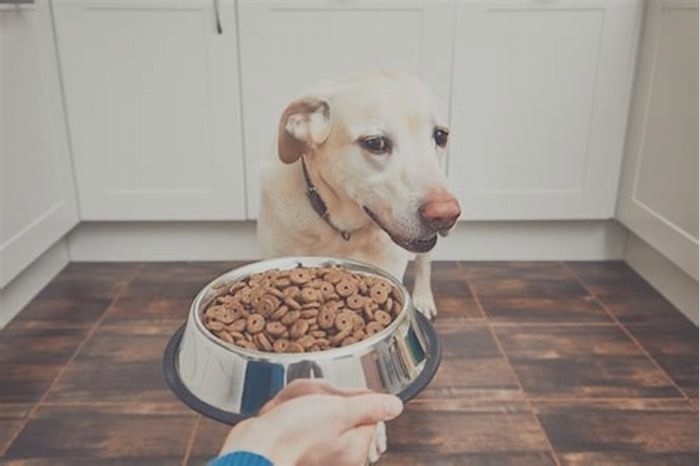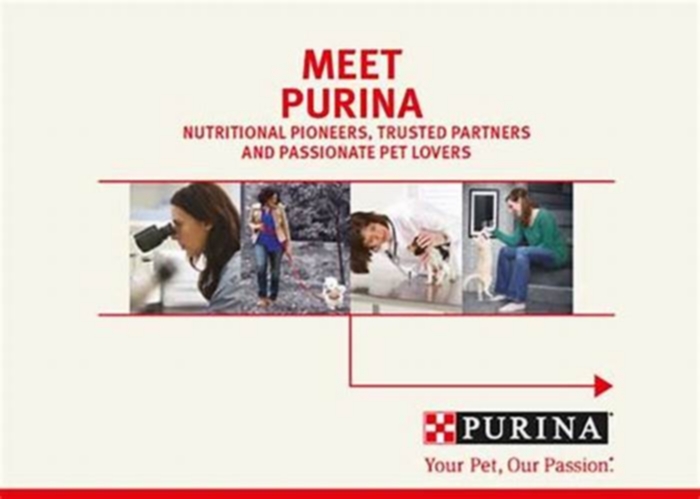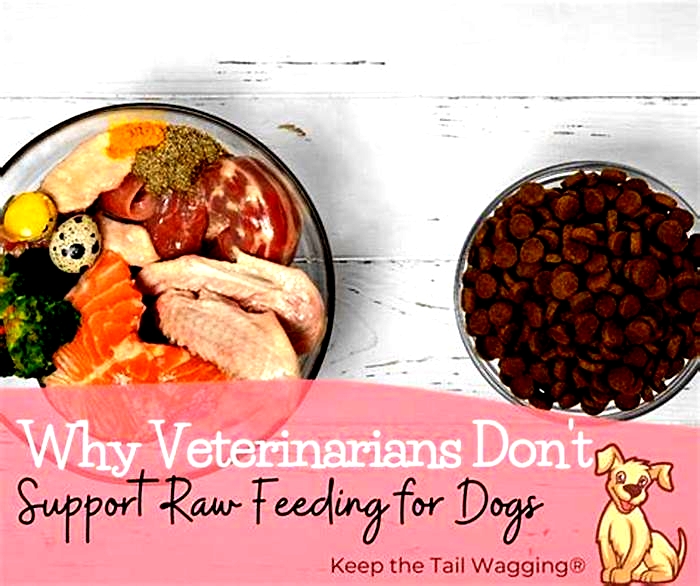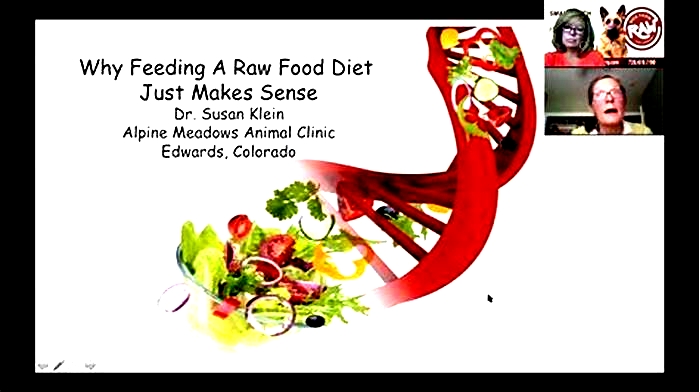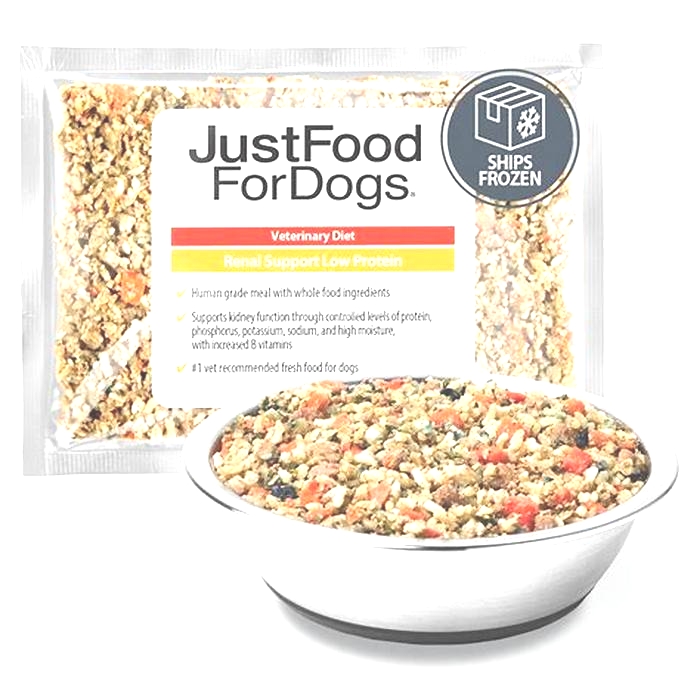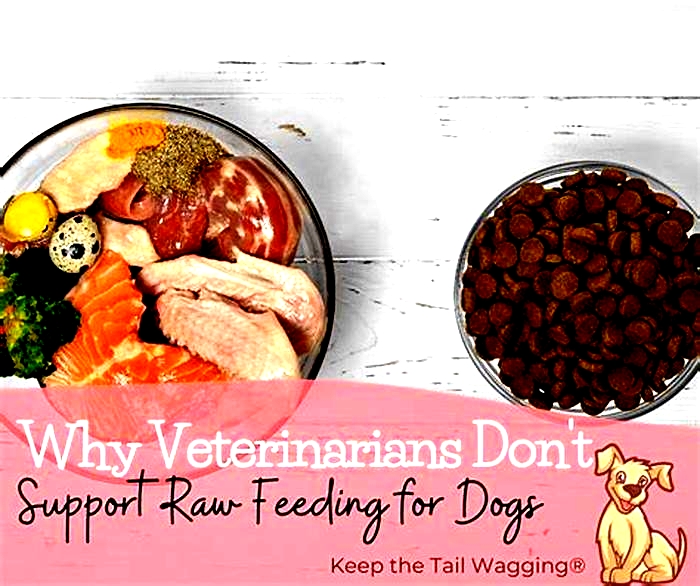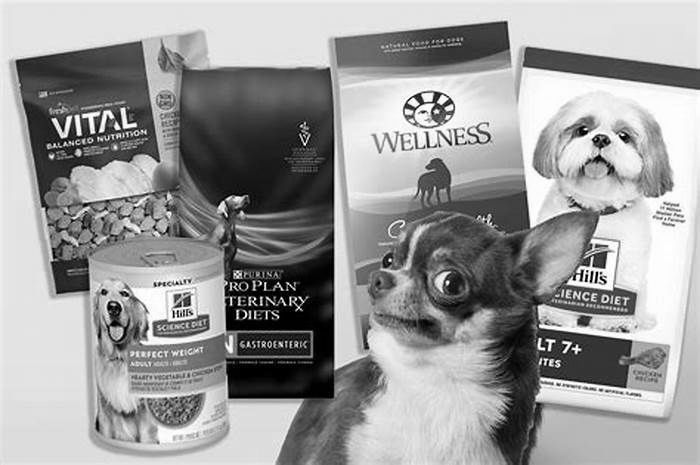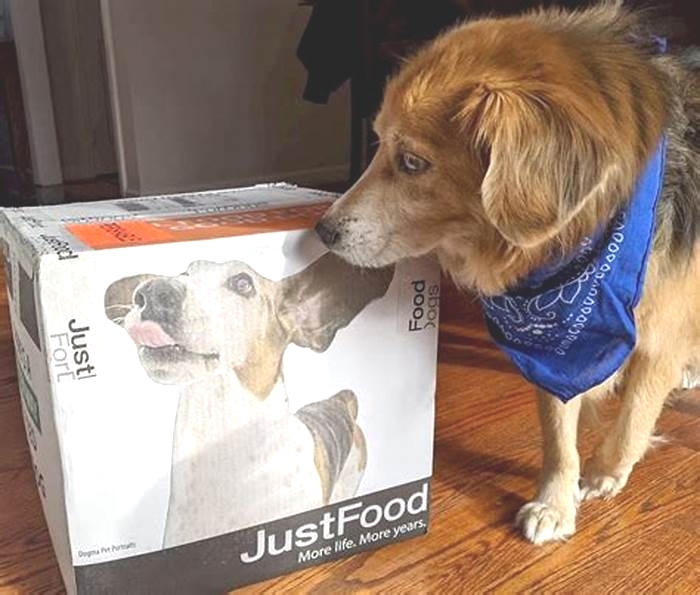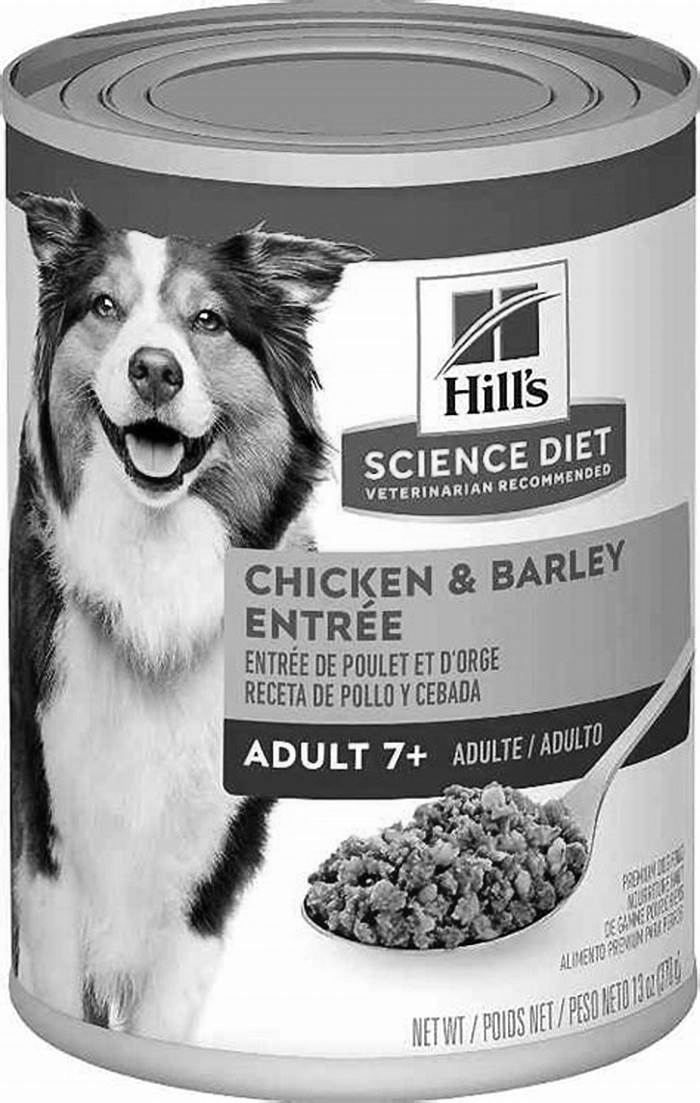Why do vets push kibble
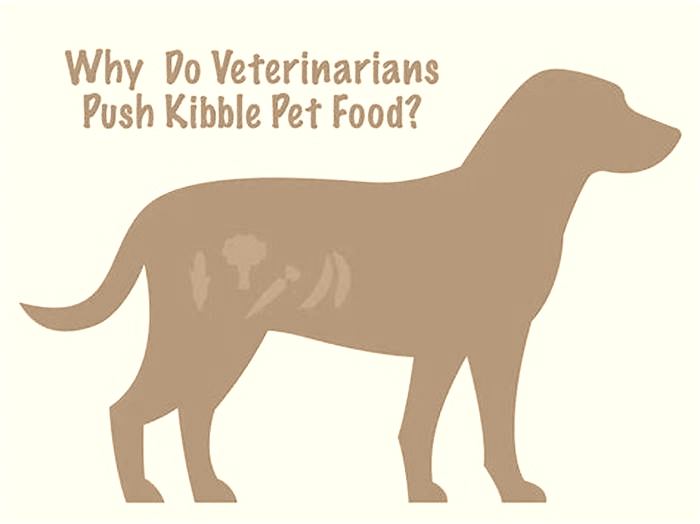
Why Do Most Vets Still Recommend Kibble over raw dog food even though raw is better for your dogs health?
Many vets recommend kibble over Raw feeding because it's less liability on them. Vets are not canine nutritionists. Raw feeding has various formulas and if not formulated correctly, dogs can develop deficiencies. Vets are also educated on dogfood through programs funding by mega corp Kibble companies such as "Mars pet food company" and "Purina"
https://newscenter.purina.com/2023-01-26-Purina-R-Pro-Plan-R-Veterinary-Diets-Announces-Partnership-with-AVMF-to-Support-Veterinarians
Vets are not directly paid for selling kibble such as Science diet or Royal Canine but there are incentives. These mega dog food corporations are the ones educating our vets on canine nutrition. Hmmm...
We compare this structure to human pharmaceuticals and doctors. We prefer a more holistic approach here at DRP.
For us here at DRP, we view Raw Feeding as common sense. It's the canines natural intended diet. We always asked ourselves, how could raw feeding be worse than processed kibble? Raw is no longer inconvenient and prices are comparable. Did you know that most Bagged Kibble brands have daily salmonella recalls?
It would be irresponsible for a vet to try to advise a client to raw feed without being certified canine nutritionists. This creates liabilty for the vet if they were to advise. No vet needs anymore of that! There are precautionary risks that you have to take with raw feeding. Balanced diet is key. Identifying the correct balance and optimal protein is key. Being sanitary is important, just like it is with kibble feeding. Both require being sanitary.
Most Vets have the best interest of your animal at heart, and it isn't just a money-making scheme for them to make more money by pushing a science diet. It's simply Convenience, Incentives, and Accessibility.
We're not against vets, we love our Vets! We're just saying that education is key!
It's all about canines for us here at DRP. The love of your animal and doing what is raw, and authentic, and natural. Like us humans, we gotta get back to basics. We gotta get back to our natural diets and things that we eat. Otherwise, we bear the health effects from it.
"FEEDING YOUR DOG KIBBLE EVERYDAY IS LIKE US EATING MCDONALD'S EVERYDAY"
We see rising cancer rates in recent history. Twoout of four dogs die from cancer.
"STUDIES SHOW RAW FEEDING YOUR DOG CAN ADD 2+ YEARS OF LIFE"
Storage mites are more common than most understand. Dogs ingest the mites causing gut irritation, red irritation on the belly, inflammation of the skin and itching.
Organic raw dog food is healthier and just as safe as kibble
Canine and human health all starts in the gut.
More importantly, when you are an Athletic Canine, DRP, or KC-K-9 customer, we provide free coaching and supervision with your raw diet.You get service with your dog food that you're not going to get from PetSmart or other raw companies. We're a phone call away. If you have a question about raw diet or additives, we're here to coach you through it because we care about your pet.
The food we give our dogs makes a huge difference in their health and well-being.
Check out our Raw Organic Dog Food!
Why do some vets recommend and sell kibble?
Confused about vets and kibble? Then hear directly from our Pet Nutritionist Clare on the subject below
If youve done your research and decided that a fresh food diet is the way to go for your beloved pet, it can be extremely confusing to then go to the vet and see rows of heavily processed food that youve been led to believe is not in the best interests of their health.

Or worse, your vet actually advises against a homemade diet, warning you of the many risks of feeding fresh food and insisting you switch back to this heavily processed commercial food.
Why would vets sell and recommend this food if it wasnt the healthiest, best option?
This is a tricky topic and one we approach with a heavy dose of respect for vets, and a wealth of gratitude for everything they do to keep our pets healthy and safe.
Unfortunately, its not unusual for die-hard fresh feeding advocates to accuse vets of all sorts of awful things when it comes to pet food, from personally taking kickbacks from pet food companies to even wanting animals to get sick so they have more business.
These are harmful myths that are, generally speaking, totally false.
The reality of why these foods feature so heavily in veterinary clinics is in some ways is actually far more troubling, but at a personal level, it's not fair to place all of the blame on individuals who care greatly about animal welfare.
At the end of the day, the vast majority of vets are not experts in nutrition (processed or fresh). Typical companion animal veterinarians are much more comparable to a GP or surgeon, specialising in the clinical treatment of illness, injury and disease.
Some veterinarians do undertake further study in nutrition, but these vets are often the ones who do support fresh food diets.
Where things start to get rather murky is when we look at the overarching influence of the processed pet food industry on the veterinary industry as a whole.
In 1997 the senior vice president of global marketing and sales at Colgate, the parent company of Hills Pet Nutrition, admitted to the Wall Street Journal that "the bulk of our expenditure goes to the veterinary community," a strategy based on Colgates success in targeting dentists to endorse their toothpaste, beginning in dental school programs.
As far back as 1997 Hills was funding nutrition education in half the veterinary schools in the US, and currently all 7 universities in Australia that offer veterinary science degrees also have corporate relationships with one or more of the big three pet food companies, the details of which they guard closely.
Veterinary teaching hospitals are targeted with lucrative contracts in exchange for promotion of their prescription foods, and major pet food brands often recruit student representatives at universities.
Perhaps most concerningly, the Small Animal Clinical Nutrition textbook that is still widely used around the world as the gold standard resource for dog and cat nutrition was written by Hills Pet Nutrition employees, and is published by an associated non-profit bearing the founder of Hills name and fully funded by them.
These companies also spend an inordinate amount of money on clinical research in highly controlled environments using heavily refined ingredients to support their dubious nutrition claims, and funnel large amounts of cash into countless seemingly independent veterinary nutrition associations and foundations, which coincidentally all endorse and promote their products and research.
Ultimately, some of these products do work. In the case of animals with severe food allergies, hydrolysed diets made from feathers dont cause an allergic reaction because they are so intensely processed that the animals body does not recognise them as proteins, so they do not react.
But they do nothing to address the underlying issues or promote good health. Rather they manage symptoms, often temporarily, while potentially causing other longer term issues that are not so easily linked back to nutrition.
While frustrating, this is, largely, not the fault of vets.
It is a result of these billion dollar corporations using their massive influence to infiltrate the veterinary industry from the moment students set foot on a university campus, and the blame should lie squarely with them.
Despite this, there are vets who support a homemade or fresh food diet, and many of them feed their own pets this way.
Finding one can take a little research, but it is well worth it to feel supported in the approach you have chosen to nourish and care for your pet.
To learn about what is in commercial food read here
We asked Dr. Tammie Pearce, Director of Veterinary Science for AskVet, to weigh on the pros and cons of kibble vs raw or fresh diets for dogs.
As a veterinarian, I am often asked to compare raw or frozen diets to kibble diets. Well, Ive got great news for busy parents, kibble diets can actually offer several advantages over raw diets.Some dogs do not do well on fresh diets or raw diets because they can be time consuming to prepare and difficult to balance.
And then theres the price tag. While all pet parents want the best for their pups, more expensive doesnt always mean better. Raw and fresh diets can be more costly than kibble diets in both time and the expense of obtaining the ingredients. Raw diets can also spoil quickly if not maintained at the proper temperature when thawing and serving.
Got a finicky bud that doesnt always eat right away? If your pup doesnt come running to eat on the regular, a raw diet can be challenging. Food left out should be discarded since leaving it out at room temperatures for prolonged periods can cause the growth of dangerous bacteria like salmonella.
Kibble diets provide portability and, when stored in the original bag and an airtight container, a more economical healthy diet for your pup. They are also more consistent in their formulations and not as hard to source fresh, uncontaminated raw ingredients. Kibble diets like Jinx have been formulated and tested to be highly-digestible protein sources and provide the nutrients your pet needs to thrive!
That's another pawsitive tip from AskVet's Dr. Tammie! To learn more about kibble and dog nutrition, you can chat with an AskVet veterinarian 24x7 on the AskVet app any time, day or night. All new Jinx customers receive one free month of access to AskVet with any Jinx purchase.
Wet vs. Dry Food for Cats
For the average cat parent, should I feed canned or dry cat food? is a question that provokes anxiety and indecision. Which one is better for your cats health? While there are some clear benefits to feeding certain types of diets, veterinarians can help dispel some common myths about whether wet vs. dry cat food is best to incorporate into your cats diet.
Myth 1: Dry food improves your cats dental health
Some kitty owners think they are doing the best for their cats dental health by feeding them dry cat food. I know Fluffy has great dental health because I feed her only dry food! is a common sentiment expressed daily at veterinary hospitals around the country.
In fact, there are only a few foods on the market that are proven in independent laboratory studies to reduce the amount of plaque and tartar on your cats teeth. Whats the secret? Kibble that retains most of its shape even when the sharp teeth of your favorite feline bite off a piece. While they chew, the larger remaining pieces of kibble act as a kind of toothbrush, rubbing against the surfaces of your cats teeth.
These dental diets are not sold over-the-counter and are only available with a veterinarians prescription. If you are not feeding your cat one of these special kibbles, then rest assured there is no dental benefit to feeding dry foodthe kibble disintegrates into pieces too tiny to have that toothbrush effect once your kitty takes a nibble.
Myth 2: Canned food causes cats to become overweight
Many cat owners believe that canned cat food, also called wet food, is more rich in calories and can make their kitty too chubby. Although many cats go crazy for canned food, canned food actually has LESS calories per cup when compared to dry food!
How can this possibly be true? Well, canned cat food consists of up to 80% water and all of that extra water is both filling AND low in calories. Feeding wet cat food is similar to drinking a glass or two of water with your favorite mealyoull end up eating less and consuming fewer calories.

Myth 3: All cats love canned OR dry food
Some cat lovers swear by canned food, saying that all cats prefer itand some cat lovers say the same about dry food! Which group is right?? The correct answer is: BOTH!
Cats tend to have preferences for the texture of their foodfrom specific types of canned food (pate, shredded bits in gravy, morsels in gravy) to shapes of dry kibble (round, triangular, square). In some cats, feel good hormones are released from the brains reward center when they crunch on dry kibblemaking it even harder to transition a dry food eater to a wet food eater. These kitties are truly addicted to dry foodand it can be hard to make the switch. For this reason, its best to introduce kittens to multiple dry and wet canned food textures so that they dont develop an aversion to a medically-indicated diet later in life, if needed.
Myth 4: It doesnt matter what I feed my cat
If its difficult to transition a cat from dry food to wet canned food, then why should you consider changing that habit? Does it really matter?
The answer to this particular question is that YES, it definitely mattersto your cat! When we think about how cats evolved to eat, they are normally supposed to hunt, catch, kill and eat small animals for food. Cats are obligate carnivorestheir bodies are designed to run on the ultimate high-protein, low-carb diet: birds, mice, lizards, and other small animals. They need essential amino acids that are ONLY found in animal protein in order to survive. (This is why cats cannot survive on a vegan diet.)
How does this relate to the canned vs. dry food debate? Well, when we consider their protein and carbohydrate needs, the health of your cat is optimal when fed a high-protein dietideally, about 50-60% protein. Carbohydrates are NOT valuable fuel for your cat, and carbohydrate levels lower than 10% are ideal to prevent medical conditions such as obesity and diabetes. When cat food is manufactured into kibble, this process involves dehydrating the ingredients and binding them together to make them keep their form as small piecesand the ingredients that create these magic shapes areyou guessed itcarbohydrates. Therefore, dry food always has higher than optimal carbohydrate content for our domestic cats.
Another key element that is lacking in dry food for our cats is WATER. You may have noticed that your cat doesnt drink much waterand theres a reason for that! Cats evolved in desert conditions, which means that their bodies are very efficient at utilizing water. So efficient, in fact, that their thirst drives are lower than many mammals, and their kidneys (organs that filter waste into the urine) are some of the most sophisticated water-conserving organs of any animal on earth! Unfortunately, kidney disease in older cats is one of the most common chronic medical conditions we see as veterinariansand it can be truly devastating.
Since cat kidneys are excellent filters, we can help them do their job by promoting more water intake. Increased water creates less work for kitty kidneys, and can help maintain a healthy bladder. Canned food is an excellent way to provide this for your favorite feline. If your cat is addicted to dry food, you can add a teaspoon of water to their kibble at first, and then after a week or two, add two teaspoons of waterand on and on. Eventually, your cat (and their kidneys!) will be happy with canned foodbut be patient, as sometimes this cumbersome process can take several weeks up to a few months.
Some cat food puzzle toys will only accommodate dry kibble. Dont fretyou can feed your kitty a fraction of their daily calories using these hunting toys, and give them the rest with high-quality canned food. You can make up for some of the lost water consumption opportunities by incorporating a cat water fountain into your home. Cats are naturally attracted to running water (as evidenced by any kitty who loves to lap water from a dripping sink, or lick water from the bottom of a freshly-used shower!). You can encourage your cat to drink more just by having one of these bubbly fountains on offer.
As always, no matter what type of food you choose, portion control is essential to maintaining your kittys physique and preventing other health problems later in life.
The Bottom Line
As you can see, there are clear health benefits to feeding your cat canned food instead of dry food. However, if you want to incorporate dry food into your kittys feeding routine, you can still provide health benefits to your beloved cat by adding some water to their kibble at each meal and incorporating a water fountain into your home!
Our AskVet Veterinarians are available to discuss all of your pets needs 24 hours a day, 7 days a week. Whether its learning how often you should feed a cat, understanding the different toxic foods for cats, or how to get a cat to lose weight, just sign into your account, and one of our friendly and knowledgeable veterinary experts will attend to your needs, no appointment required!
Written by:
Allison Ward, DVMDr. Allison Ward grew up in the suburbs of Washington, D.C. and started working in veterinary hospitals when she was 14 years old. After graduating from veterinary school in 2011, she completed a small animal rotating internship in New Jersey, followed by a neurology/neurosurgery internship in Miami. After completing this advanced training, Dr. Ward then moved on to general small animal practice. Dr. Wards professional interests include feline medicine, neurology, and pain management. Her passion for educating pet owners carries over into her work with AskVet, and she loves being able to help pets and their parents at all times of the day (and night!). She currently resides in sunny south Florida with her two cats, Larry and George.

